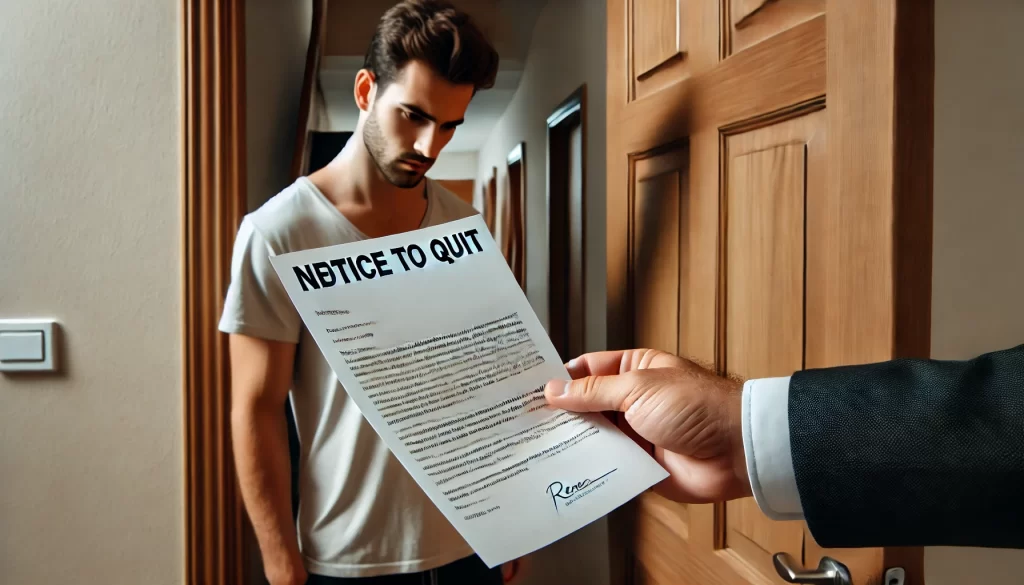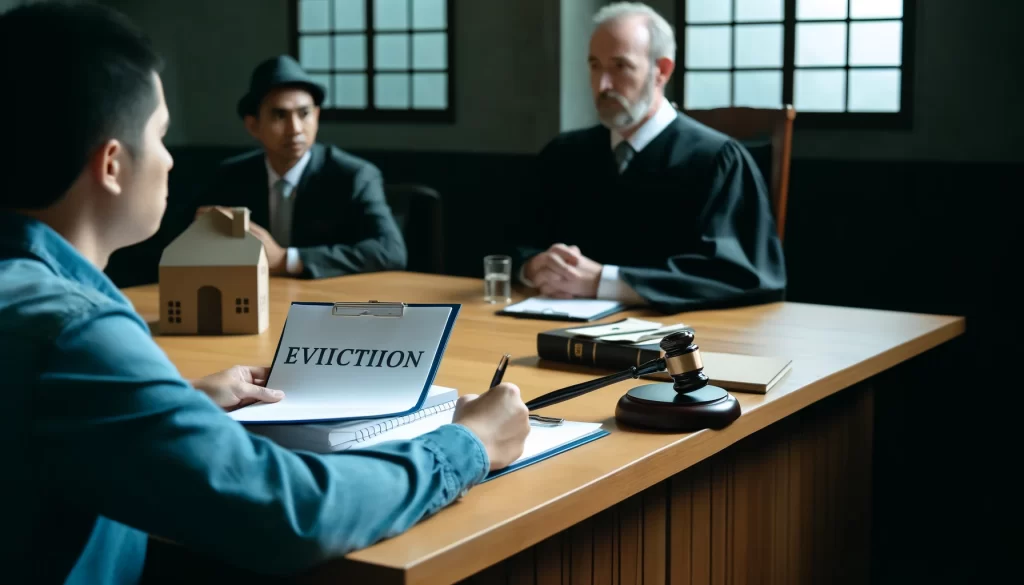How Long Does Eviction Take in Florida? Shocking Truth!

Table of Contents
Evictions can be a stressful and uncertain process for both landlords and tenants. If you’re wondering, how long does eviction take in Florida, you’ve come to the right place. In this article, we’ll break down the steps involved in Florida’s eviction process, how long each stage typically lasts, and what to expect during the procedure. Understanding the eviction timeline is essential for anyone facing this situation.
What Is the Eviction Process in Florida?

To understand how long eviction takes in Florida, it’s essential first to understand the process. In Florida, eviction is a legal process that a landlord must go through to remove a tenant from the property. Knowing the proper steps helps avoid unnecessary delays whether you’re a landlord or tenant.
Reasons for Eviction in Florida
In Florida, landlords may evict tenants for various reasons. These reasons can impact how long does eviction take in Florida, depending on the situation. Common causes for eviction include non-payment of rent, violations of lease terms, and tenants remaining on the property after the lease has ended. Each of these scenarios can affect the eviction timeline differently.
- Non-payment of rent: The most typical cause of eviction. If the tenant doesn’t pay rent, the landlord can begin eviction.
- Violation of lease terms: If a tenant breaks any lease terms, such as having unauthorized pets or guests, the landlord may evict them.
- Holding over after lease termination: An eviction can be pursued when a tenant refuses to leave after their lease has ended.
Understanding why evictions happen is essential because each situation can affect the process’s length.
Step 1 – Serving a Notice to Quit
The first step in eviction is giving the tenant a Notice to Quit. This legal document informs the tenant of the reason for the eviction and how long they must fix the issue (if possible) before legal action is taken.
- Non-payment of rent: A 3-day notice is given to pay rent or move out.
- Violation of lease terms: A 7-day notice to correct the violation or vacate the property.
- End of lease: A 15-day notice for tenants who stay beyond their lease.
This initial step typically takes 3 to 15 days, depending on the reason for the eviction.
Filing an Eviction Lawsuit

If the tenant does not comply with the notice, the landlord has the right to file an eviction lawsuit, also known as an unlawful detainer. This step is crucial in determining how long does eviction take in Florida as it officially initiates the legal eviction process.
How Long Does It Take to File the Lawsuit?
Once the notice period ends, the landlord must file the eviction lawsuit with the county court where the property is located. The filing process typically takes 1 to 3 days, depending on how quickly the paperwork is completed and submitted.
Serving the Tenant with Court Papers
After the lawsuit is filed, the tenant must be served with court papers informing them about the eviction case. In Florida, this must be done by a sheriff or process server, which generally takes 5 to 10 days.
If the tenant avoids being served, this process could take longer, adding additional time to the eviction timeline.
Tenant’s Response Time
After receiving the court papers, the tenant has 5 business days to respond. During this time, they can either contest the eviction, pay the rent (if that’s the reason for the eviction), or move out.
- No response: If the tenant does not respond, the landlord can request a default judgment, which usually takes a few days.
- Contest the eviction: If the tenant contests the eviction, the process could take longer as a hearing will be scheduled.
In most cases, tenants who do not contest the eviction speed up the process.
The Court Hearing
If the tenant contests the eviction, the case is brought to court, where a judge will hear arguments from both sides before making a final decision. This can impact how long does eviction take in Florida, as the process may take longer if a court hearing is required.
How Long Until a Court Date?
In Florida, the court hearing is usually scheduled within 1 to 2 weeks after the tenant files their response. This quick timeline helps speed up the process, but delays can happen if either party requests more time or the court is backed up.
During the hearing, both the landlord and the tenant will present their case. After reviewing the evidence, the judge will issue a ruling.
Issuing the Writ of Possession
If the judge rules in favor of the landlord, they will issue a Writ of Possession, which orders the tenant to leave the property. This writ is typically issued within 48 hours after the court ruling.
Removal of the Tenant
Once the Writ of Possession is issued, the sheriff will deliver the notice to the tenant, giving them 24 hours to vacate the property. If the tenant does not leave within that time, the sheriff will return to remove them forcibly.
How Long Does This Take?
From the time the writ is issued to the actual removal of the tenant, the process usually takes about 2 to 3 days. However, it could take longer in some cases if there are complications or delays in the sheriff’s schedule.
Also Read: How Long Does It Take to Jump a Car? Shocking Time Reveal!
Total Time for an Eviction in Florida
So, how long does eviction take in Florida? In the most straightforward cases, where the tenant does not contest the eviction and leaves the property willingly, the process can take as little as 2 to 4 weeks. However, if the tenant fights the eviction, the process could stretch to 6 to 8 weeks or more.
Here’s a breakdown of the timeline:
- Notice to Quit: 3 to 15 days
- Filing the lawsuit: 1 to 3 days
- Serving the tenant: 5 to 10 days
- Tenant’s response: 5 days
- Court hearing: 1 to 2 weeks
- Issuing the Writ of Possession: 2 to 3 days
- Removal by sheriff: 2 to 3 days
The eviction process in Florida can vary depending on whether the tenant fights the eviction and how quickly the courts move. On average, it takes anywhere from 2 to 8 weeks, depending on the specific circumstances.
If you’re a landlord or tenant wondering, how long does eviction take in Florida, knowing the process can help you prepare for what’s ahead. Evictions can be time-consuming, but following the legal steps ensures the process is as smooth as possible. Always consult a legal expert to better understand your rights and responsibilities during an eviction.
By understanding these steps, both landlords and tenants can navigate the eviction process with greater confidence and reduced stress. This knowledge helps in managing how long does eviction take in Florida and prepares both parties for what to expect.



